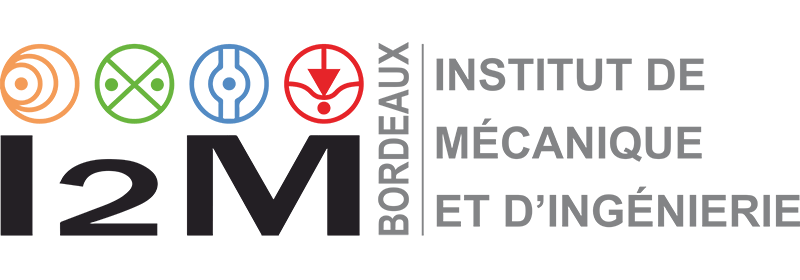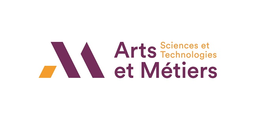Analysis and modelling of 3D variable stiffness composites produced by additive manufacturing, taking account the specific features of the process
PhD Position at I2M Laboratory of Bordeaux

Variable stiffness composites (VSC) derived from additive manufacturing (AM) are fundamental for applications requiring lightness and high performance. VSCs are obtained by placing the reinforcement along a curvilinear path in a given topology. Within the I2M laboratory, the SMARTCOMPOSITE (Region NA, 2016-20) and PARSIFAL (RIA H2020, 2017-20) projects have enabled the development of an original methodology for the design and multi-scale optimisation of composites obtained by AM while considering certain process constraints (e.g. local fibre bending radius) since the preliminary design stage. However, the behaviour of CRVs at different scales remains an open problem: the stiffness gradients due to the orientation of the reinforcement must be taken into account, as well as the AM process, which introduces several differences between the numerical model and the real structure.
In fact, the design methodology for VSCs obtained by AM must take into account the specific features of the process and the effects on the distribution of material properties that derive from it, in order to reduce the gap between the mechanical response of the numerical model and that of the real structure.
Following the work carried out at I2M, the aim of the SMARTCOMPOSITE2 project is to set up a R&D platform (numerical and experimental) for composites obtained by AM. To achieve this main aim, the PhD thesis project will focus on the analysis of the effects of the complex morphology of VSCs and the specific features of the process on the mechanical response of the material.
In fact, the behaviour of composites obtained by AM at different scales remains an open problem: more specifically, the gradients in stiffness, strength and anisotropy are the source of physical mechanisms that differ from those of conventional laminates. These gradients are due to the FA process, which introduces two types of imperfections: defects (whose presence cannot be controlled) and singularities (whose presence can be controlled by appropriate adjustment of the process). The imperfections induced by the process to be integrated into the design/optimisation strategy must be (1) identified (porosities, microcracks, resin-rich zones, etc.), (2) classified by type (defects or singularities) and then (3) evaluated according to their influence on the behaviour of the VSC.
In this PhD Thesis, the main limitations of the process as well as the imperfections and damage mechanisms of the VSC will be analysed and modelled in a multi-scale global-local FE approach. This will be done by addressing the following tasks:
- Identification of process parameters that influence the generation of imperfections (defects and singularities) and correlation with design variables (materials and topology). Manufacture and tests on representative samples in low-modulus thermoplastic resin.
- Development of high-fidelity numerical models of 3D VSCs produced by AM at any characteristic scale, i.e. from the scale of the constituent phases to the macroscopic scale (taking into account the local variation in the mechanical and topological properties of the structure in relation to imperfections at lower scales).
- Development of experimental protocols for characterising damage mechanisms in correlation with the local micro and mesostructure of the VSC.
- Enhancement of high-fidelity models integrating damage mechanisms specific to 3D VSCs produced by AM.
- Use of the models/results from task 1 to 5 to define low-fidelity models of the 3D VSC to be integrated into design and optimisation strategy available at I2M Laboratory.
Required profile:
MSc in Engineering Mechanics or Mathematical Engineering (Bac+5)
Composite Materials and Structures theory
Programming (Python, Matlab)
FE modelling (Ansys, Abaqus)
Required documents:
CV, Motivation Letter, MSc Grades






